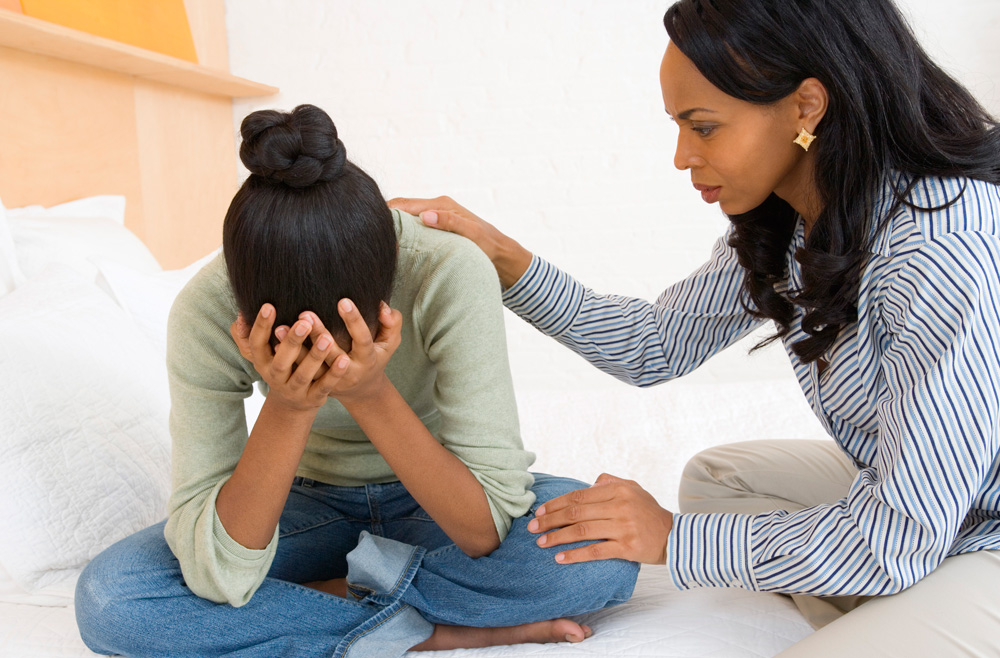Parents want their children to enjoy good physical health, but they also focus on making sure they have good mental health. When a teenager experiences a mental health disorder, what is the best approach to helping them? In today’s age of modern technology, several mental health apps for teens are available. New View Wellness in Atlanta explores what this means and how it fits with traditional treatment approaches like therapy and medication.
Teenagers and Mental Health Disorders
Teenagers deal with a lot of challenging situations and emotions related to being their age. Adolescence is a time of change and discovering aspects of a person’s personality and what type of adult they want to become. Unfortunately, mental illness can strike anyone at any age. In fact, about half of all adolescents have had a mental health disorder at some point during their young lives. The most common mental illnesses in teenagers include:
Other types of illnesses teens can struggle with include bipolar disorder, post-traumatic stress disorder (PTSD), obsessive-compulsive disorder (OCD), borderline personality disorder, disassociative disorders, and schizophrenia. Seeking mental health treatment for teens can create the ability to enter effective therapy and gain access to prescription medications that can help ease their symptoms. In increasing numbers, mental health apps for teens have become a tool in a young person’s recovery kit.
Are Mental Health Apps a Good Idea?
The number of mental health apps for teens available increases regularly. Teenagers often keep up with advances in technology faster than their parents. As a result, many young people download apps that offer them a way to cope with a mental health disorder. An app by itself does not provide all the help a person needs when it comes to treating a mental illness. However, it can prove beneficial in two ways.
First, admitting that a person struggles with poor mental health is difficult at any age. It can be especially hard or embarrassing for a teenager to admit something is wrong and ask for help. Mental health apps can provide a vital initial way for them to understand they have an illness and put a name to it. It can also give them the support and ideas needed to help them tell an adult they need help.
Second, once a teenager enters formal care, many clinicians recommend they try using an app as a supplement to their treatment program. Apps can be used for support between therapy sessions and help teens express themselves better when they talk to their therapists.
The 5 Best Mental Health Apps For Teens
Many mental health apps for teens offer tremendous opportunities for teenagers to improve their symptoms and feel better. Some of the best ones include:
Sanvello (formerly Pacifica): This app helps teenagers who deal with stress and anxiety. It uses cognitive-behavioral therapy techniques to help them track their thoughts, moods, and emotions. They can listen to audio exercises and connect privately or with helpful communities.
Calm Harm: This app provides help for teenagers who feel the impulse to self-harm. It provides ideas and activities that help them deal with their emotions and offers resources to help teens overcome self-harm.
Unique Daily Affirmations: A daily affirmation is provided each day for the teenager to say out loud and use as inspiration to feel positive and that they have value in the world.
Happify: Teenagers can use this app to help them choose a goal that will help them feel happy. It gives them ways to overcome negative thoughts and use activities like mindfulness to overcome difficulties in completing their goals.
The Trill Project: A type of social network designed by teenage girls that allows peer group discussion in a moderated community. Participants can talk about mental illness, addiction, LGBTQ issues, and more.
How is Mental Illness in Teenagers Treated?
Mental health treatment for teens can take place in either residential or outpatient settings. For someone with a severe illness, entering residential treatment can be the best option. After completing it, they can enter adolescent Partial Hospitalization Programs or adolescent Intensive Outpatient Programs. As well, going straight into outpatient treatment can offer a young person the vital help they need without having to move into a facility.
Both types of treatment provide access to a structured program of different types of therapy. These therapies help each person understand and identify their emotions, thoughts, and behaviors. From there, they can learn to manage their symptoms and improve their quality of life. Clinicians teach teenagers to develop healthy coping skills and make better choices whenever possible. Families are typically invited to be part of the process by taking part in family therapy.
Access to prescription medications also helps teenagers by minimizing their symptoms. This not only makes them feel better but allows them to participate in their therapy sessions with more focus.
Find Treatment for Mental Illness For Teens in Atlanta
People have a multitude of options when it comes to finding help for mental illness, but so many treatment centers only work with adults. New View Wellness in Atlanta created a program specifically for teenagers who struggle with mental health disorders. Our staff of skilled clinicians know how to connect with young people and get them to feel comfortable opening up about their emotions, experiences, and fears. We work with their parents to make sure they stay fully informed and invite them to participate in family therapy sessions. Our outpatient programs can help teenagers find their strength and work toward bright futures.
For more information about our program, contact us, and let’s talk about how to help your child feel better and reach their full potential.

